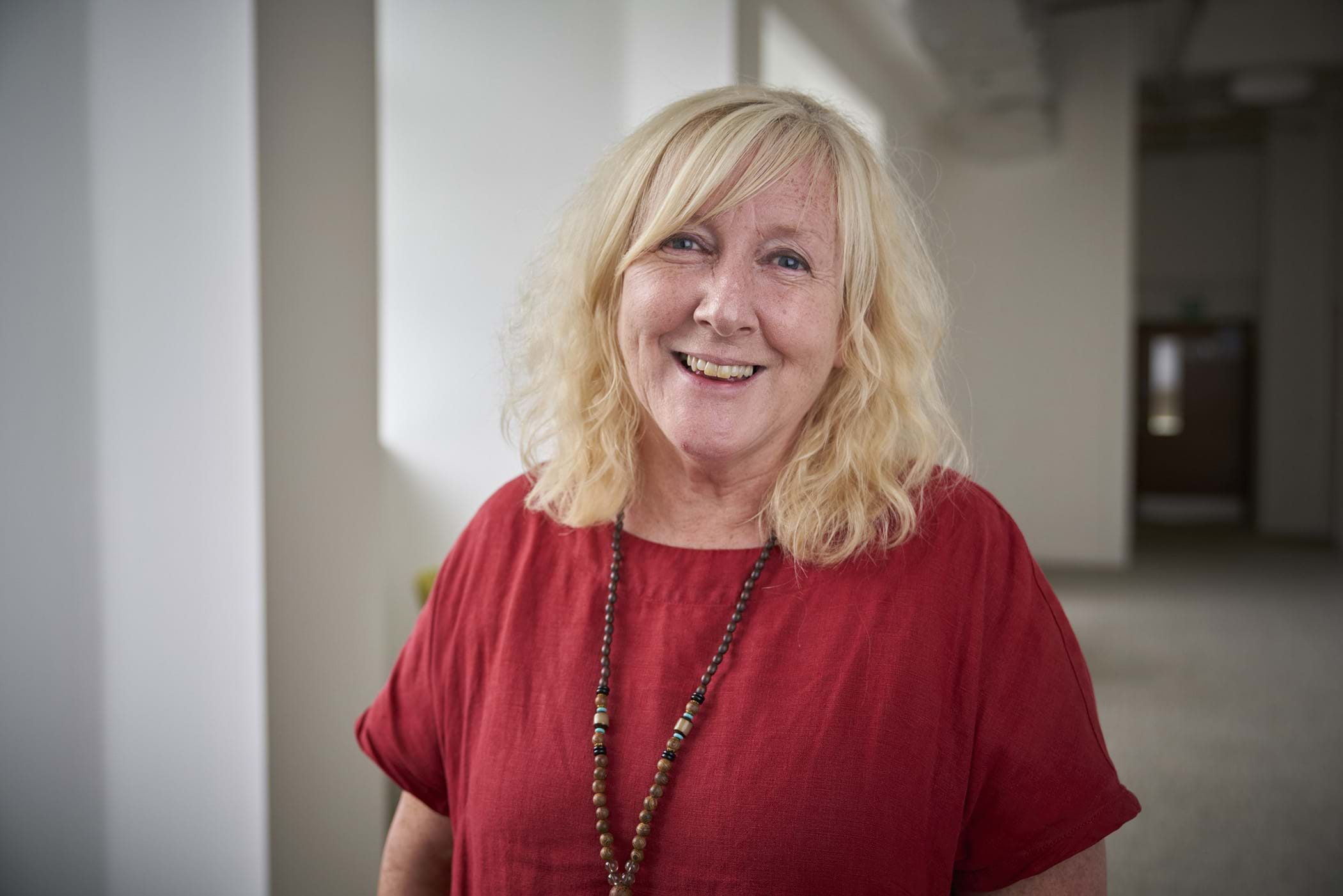Pause carousel
Play carousel

An academic at Abertay University has helped develop a free online resource designed to support the mental wellbeing of blind and partially sighted people and their families.
Dr Mhairi Thurston, a senior lecturer on Abertay’s MSc Counselling programme, worked with sight loss charity Retina UK on the free online tool following a survey that showed 92% of those with inherited sight loss suffer negative psychological impacts.
Comprised of three online courses which can be accessed through Retina UK’s Discover Wellbeing portal, the new resource is designed to support individuals at different stages of their sight loss journey. There are five modules in each course and there is a mixture of accessible content with video, audio and written elements.
The content and structure of the courses are based on the ‘Five stages of sight loss’, a framework developed by Dr Thurston following years of research into the impact of sight loss on mental health. The model has been used widely within the sight loss sector and has been presented at various international conferences and government select committees.
Dr Thurston said:
In the past, sight loss was tackled purely from a functional perspective. Services were very much focused on how to help the individual practically, for example with low vision aids and mobility training, so the emotional impact rarely considered. Thankfully healthcare professionals are starting to take a more holistic approach to treating sight loss and there is now a lot of support out there aimed at promoting positive mental health in the sight loss community. These new courses are just one example of the support that is available, and I hope they provide individuals with the tools to look after their mental health whilst navigating their sight loss journey.
Dr Thurston is legally blind herself and was diagnosed with Retinitis Pigmentosa (RP) at aged 39. She has used her own lived experience to inform her research and said it has been an “incredibly rewarding” experience having a role in developing resources that will support other people’s mental health.
The Discover Wellbeing portal was developed by Dr Thurston and Retina UK in partnership with Arthur Ellis, a mental health support charity. It was launched at Retina UK’s annual conference in July 2022 where Dr Thurston was a keynote speaker.
Denise Rawden, Information and Support Manager at Retina UK said:
92% of people living with inherited sight loss who completed our survey told us they had experienced psychological impacts. This was a real concern and we set out to change this by creating accessible courses to support our community to better manage their emotional wellbeing. We approached Dr Thurston about our innovative Discover Wellbeing project as we knew she was a leading expert in the social and emotional impacts of acquired sight loss and we were thrilled when she said she was happy to get involved. We are hugely grateful to Dr Thurston for her support and delighted Discover Wellbeing has been so well received by people living with inherited sight loss and the professionals who support them.
Earlier this year, Dr Thurston was shortlisted for a Royal National Institute of Blind People (RNIB) See Differently Award in recognition of her work to improve access to mental health support for people living with sight loss. She has also been invited to speak at the Royal College of Ophthalmologists annual congress next year which she says demonstrates a welcome trend towards clinicians seeing patients in a more holistic way, and not just as a “pair of eyes.”